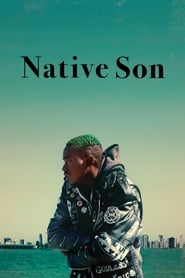The movie is at once struggling with what it wants to say, what it needs to say and what history has said before it, and its message becomes muddled "Native Son" sits somewhere in-between paint-by-number loyalty and artistic interpretation. Director Rashid Johnson and screenwriter Suzan-Lori Parks. Native Son's struggles with its problematic source material are uneven but overall compelling, thanks largely to Ashton Sanders' poised work in the central Native Son vividly revives a seminal book, and once the movie and audience get their bearings, proves as thought-provoking as it is heartbreaking.
It stars "Moonlight" star Ashton Sanders, Sanaa Lathan, and David Allen Grier. It felt like it was rushed and they did not have the time or the budget to provide the finer details of the story to explain the heart of the original story of why the title "Native Son" applied so well to Big and his part to society. Two-thirds into "Native Son," an earthshaking twist — for those not familiar with the book — turns the tables, making its commentary on racism and the treacherous waters that people of color must navigate all the more resounding.
Both writer and director, through their joint venture, seem to be asking if. Ashton Sanders gives a poetic performance as the hero of Richard Wright's novel in an updated version that For about an hour (the movie runs close to two), updating "Native Son" seems like a solid and resonant idea. No less a figure than James Baldwin. While as a feature debut, Native Son is an inarguable accomplishment, both thematically and visually, it also lacks some connectivity between dramatic events. Big's family appear briefly and are then ignored until the ending while the family he works for are left a few scenes short in the third act. Native Son is a raw, lyrical Richard Wright retelling: Sundance review.
Trailer Native Son
But the final shot is devastating: a whole human life brought down to one awful, inevitable pinpoint. More movie reviews Native Son as a novel is complicated on its own, so attempting to adapt it to modern context as a piece of cinema is going to be a difficult undertaking. Sadly this one doesn't work very well at all and even goes beneath the novel.
The major issue is in it all is that adaptation both in modernizing it and. Thus, the "Native Son" that premières, on HBO, this weekend—a movie, directed by Rashid Johnson, from a screenplay by Suzan-Lori Parks—is a feat of When it was published, "Native Son" was a best-seller and was inducted the canon because it found a form to discuss American racism, and it remains. A part of me is glad the movie doesn't end like the book, for it would probably led me to accidentally punch my monitor. Yet, I can't say the level of frustration is something.

